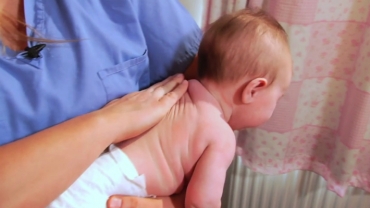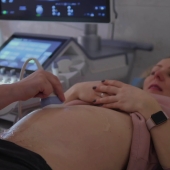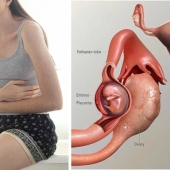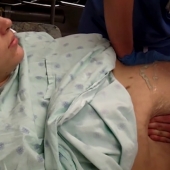Daniela Carusi, MD, MSc, Director of Surgical Obstetrics in the Division of Maternal-Fetal Medicine at Brigham and Women's Hospital, discusses types of placenta and when to consult a high-risk pregnancy specialist. This video also includes helpful illustrations that depict the different types of placenta accreta.
Placenta accreta occurs when the placenta—the organ that provides nutrients and other support to a developing fetus—attaches too deeply to the uterine wall, leading to complications during child birth. High-risk pregnancy or maternal-fetal medicine specialists BWH provide specialized care for mothers with placenta accreta.
Every family looks forward to a healthy pregnancy, and for the vast majority of women, pregnancy follows a fairly routine course. For some women, however, a high-risk pregnancy may present unexpected difficulties and challenges along the way. Having a high-risk pregnancy means that a woman has a greater chance of complications because of conditions that arise in her pregnancy, her preexisting medical status or external factors.
Maternal-fetal medicine or high-risk obstetricians at BWH specialize in high-risk pregnancy to help you achieve the most healthy pregnancy and delivery possible. Brigham and Women's Hospital has been a world leader in helping women live longer, healthier lives. We have been consistently ranked as one of America's best hospitals on the U.S. News & World Report Honor Roll and as one of the top women's health providers in the country.
- 319 views













